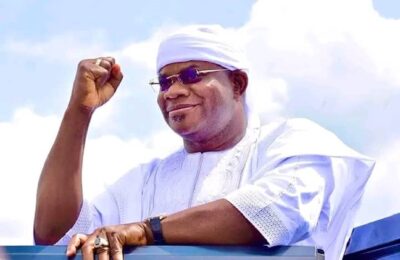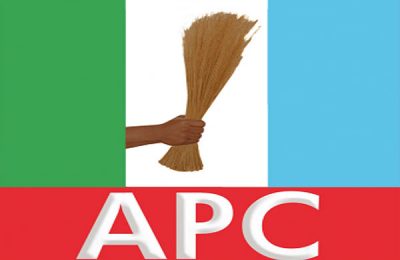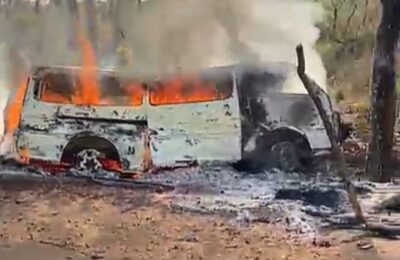The drumbeat of disunity still echoes deeply across the plains of Igalaland. Once the largest ethnic group in Kogi State and a decisive voice in Nigeria’s Middle Belt politics, the Igala people have stumbled into what many describe as a tragic self-inflicted wound. The collapse of unity has transformed a once formidable nation into what observers now call “the republic of disunity.” At the center of this crisis is a people who once commanded respect through cohesion but now bleed from betrayal and division. “We are our own enemies,” says Joseph Abbah “The chains that bind us are not forged by strangers but by our own brothers who have chosen self over community.” His lament is not isolated—it mirrors the collective sigh of a people watching their crown rust away in the dust of disaffection.
In political terms, the fall of the Igala is glaring. For years, the Attah’s stool, the symbol of Igala sovereignty and dignity, commanded reverence across the Middle Belt. But today, it is overshadowed by partisan intrigues. At Idah, the ancient capital, elders mourn what they call the desecration of ancestral heritage. “When brothers fight, strangers inherit their father’s land,” remarked Chief Ekele, a community elder, repeating a proverb older than memory. Indeed, the Igala, who once stood as kings, now often bow as beggars in a state they once controlled with numerical strength and cultural pride.
Even the youth, who should be the torchbearers of tomorrow, speak with resignation. “We are the majority, but we behave like a scattered minority,” laments Mary Onoja, a young graduate from Anyigba. Her tone carries the bitterness of betrayed hope. She recalls how her father, now deceased, often told her that the Igala crown was a symbol of unity and political strength. “Today, everyone wants to be a king; no one wants to be a servant. That is why we keep losing,” she adds. Her words echo the biblical warning of Jesus: “Every kingdom divided against itself will be ruined, and every city or household divided against itself will not stand” (Matthew 12:25).
For Igala scholars, the problem is not merely political but spiritual. Evangelist Yinka Yusuf once declared, “When the altar is broken, the sacrifices scatter.” In Igalaland, the altar of unity has been desecrated by envy, betrayal, and the insatiable greed of elites. Dr. Paul Enenche, speaking in a sermon that resonates beyond church walls, said: “Destiny is never fulfilled by wishing; it is fulfilled by responsibility.” The Igala elite, instead of shouldering responsibility, appear to have traded collective destiny for fleeting gain. Enejoh Okwoli, a stateman from Idah, captured it bluntly: “Our disunity is psychological. The average Igala man trusts a stranger before he trusts his brother. That is why we collapse from within.”
The historical memory of unity now serves as a painful reminder. Centuries ago, the Igala kingdom held sway along the banks of the Niger, feared and respected for its organization, courage, and loyalty to the Attah. “The Attah’s word was law; the people’s loyalty was absolute,” recalls Alhaji Usman, a fisherman at Idah riverbank. “Today, the throne is lonely. We prefer to quarrel over crumbs while strangers feast on the inheritance of our fathers. Igala without unity is like a canoe without a paddle—it drifts until it sinks.” His metaphor reflects the feeling of abandonment pervading the land.
Disunity has not only crippled politics but has also corroded culture. Traditional festivals once meant to bond communities are now colored by suspicion and rivalry. Even the church, often a sanctuary of healing, is not exempt. Pastors in Anyigba complain that disunity has infiltrated even the pews, turning congregations into battlegrounds of influence rather than havens of fellowship. “The devil’s greatest weapon is division,” preaches Pastor Haruna. “Once you divide a people, you don’t need to fight them. They will destroy themselves.” His voice rises with passion, but it trembles with sorrow, for he knows his people are living witnesses of this truth.
Voices from the diaspora are equally filled with grief. In Abuja, Lagos, and abroad, Igala intellectuals and professionals write essays and convene meetings, lamenting the decline. Dr. Ibrahim Audu, an Igala economist in the United States, noted in a recent symposium: “Our tragedy is not lack of numbers, not lack of intellect, not lack of history, but lack of unity. We are like salt that has lost its savor—fit only to be trampled underfoot.” He was quoting the words of Jesus in Matthew 5:13, yet they rang like a national indictment.
Ordinary Igala women, too, have their own stories. At a market in Ankpa, Mama Felicia, a pepper seller, put it in plain language: “When goats fight, it is the yam that suffers. While our big men quarrel, our children suffer poverty, lack of schools, and no good roads. Unity is not grammar; it is food in the pot.” Her proverb-rich lament shows that disunity is not just an elite problem but one that has seeped into the kitchen and the farm.
Yet, history teaches that no fall is final. The ruins of Jerusalem were rebuilt after the exile because Nehemiah wept, prayed, and rallied his people to rebuild the broken walls. Who will be the Nehemiah of Igalaland? The Attah, revered yet pressured, sits as both symbol and solution. Scholars argue that his intervention is crucial. “The Attah must rise beyond ceremonial duties to moral leadership,” insists Professor Joseph Abbah. “If he calls the people to unity with fasting and prayer, even heaven will answer.” The biblical allusion is intentional, for in Igala cosmology, the spiritual and political are inseparable.
Still, the path to unity will not be easy. Forgiveness must precede reconciliation. The Igala elite, many of whom profited from betrayal, must repent and return to the covenant of service. As the Igala proverb warns, “If the fence is broken, the goat will enter.” The fence of Igala unity has been broken, allowing goats of division and wolves of manipulation to scatter the flock. To rebuild that fence, sacrifices must be made—not sacrifices of blood, but of ego, ambition, and greed.
The people themselves must rediscover their collective identity. Igala is not just a tribe; it is a faith and a force. It is the rhythm of the Niger’s waters, the echo of the Attah’s drum, the whisper of ancestors who once stood as giants. To betray that legacy is to betray not just the past but the unborn. As Apostle Ayo Babalola once thundered, “The nation that forgets prayer will remember pain.” The Igala people, it seems, are in that season of painful remembrance.
But hope remains, fragile yet real. At a youth gathering in Lokoja, one student leader, John Okpanachi, declared: “We will not remain scattered forever. Our fathers failed us, but our generation will rise. We will rebuild, we will forgive, we will unite.” His declaration drew applause from peers who, though bruised by disunity, still carry the ember of hope. Hope is the seed from which unity can bloom again.
In conclusion, the Igala nation stands at a crossroads: the road of repentance and unity that leads back to greatness, or the road of disunity that leads to ruin. The verdict of history will depend on the choices of today. The republic of disunity can yet become the kingdom of unity if the people will remember their covenant with each other and with God. As Isaiah cried, “You will be called repairer of broken walls, restorer of streets with dwellings” (Isaiah 58:12). Let the Igala rise to that call, lest they become a parable of wasted destiny. Until unity is restored, Igalaland will remain a republic of disunity and the ruins of a once united people.
– Inah Boniface Ocholi writes from Ayah – Igalamela/Odolu LGA, Kogi state.
08152094428 (SMS Only)




